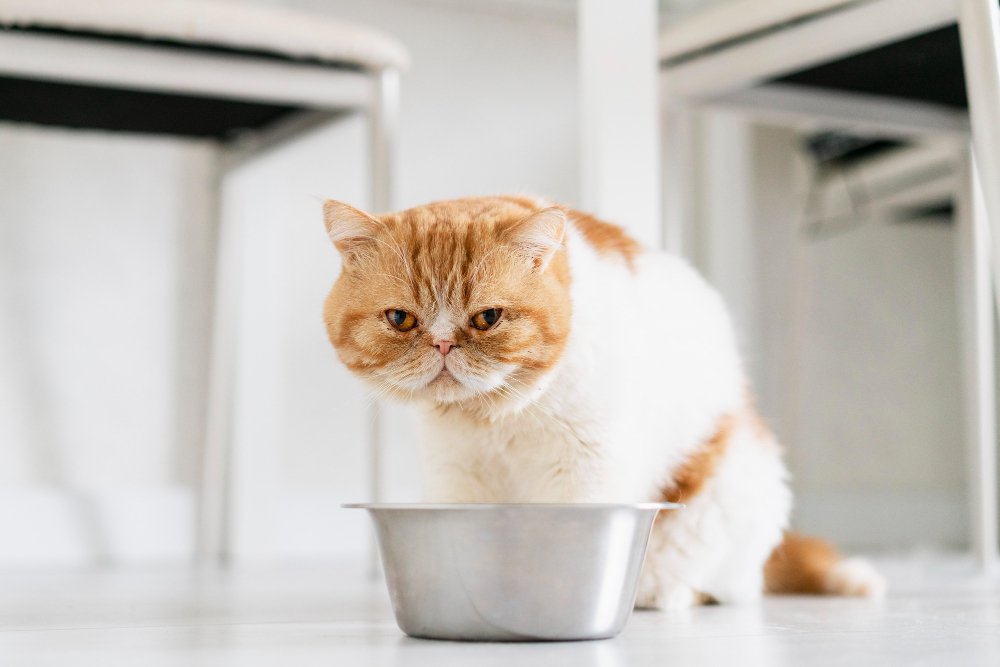Cats, just like dogs, have issues with some of the common meals that we never even think can be a problem to them, and this has been a problem to some of the unsuspecting pet owners who are not aware of such. Grapes, for example, are one of the fruits recognized as harmful to cats, and the effects can be life-threatening. Let’s examine why grapes are dangerous to cats and what to do if your cats ingest them.
Can Cats Eat Grapes?
Feeding cats grapes are not recommended, although they can consume them in tiny amounts. While many cats do not prefer fruits like grapes, a few felines might relish their texture and consume them occasionally as a wholesome snack.
However, felines do not necessitate grapes in their dietary regime.
Obligate carnivores such as cats attain their nutritional requirements solely from animal flesh. Commercial cat food manufacturers furnish all necessary proteins and minerals in small-sized kibble to cater to the needs of the once-wild house cats now domesticated.
There is no compulsion to supplement their meals with extra food, but if one still desires to do so, it is essential to choose food items that are safe for felines and avoid feeding them grapes. Other foods that you should not feed your cat are:
- Tuna
- Onions
- Garlic
- Chives
- Milk and Other Dairy Products
- Alcohol
- Raisins
- Caffeine
- Yeast Dough
- Too Many Treats
- Chocolate
- Fat Trimmings and Bones
- Raw Eggs
- Raw Meat and Fish
- Dog Food
- Large amounts of Liver
So Why Are Grapes Bad For Cats?
Ingesting a significant quantity of grapes can lead to acute kidney injury, which may further develop into renal failure. This condition is characterized by the gradual shutdown of the kidneys, cessation of urine production, and a buildup of toxins.
The exact reason for the toxicity of grapes in pets remains ambiguous. Nonetheless, some authorities propose that the animal’s incapacity to metabolize particular compounds in the fruit, such as tannins, could be the underlying cause.

Dogs can develop acute kidney failure and gastrointestinal problems upon consuming grapes. Even though there is no definitive scientific evidence to validate that cats experience comparable effects, some accounts indicate that they may exhibit similar reactions.
However, felines are less likely to consume grapes due to their discerning eating habits. It is essential to note that certain human foods that are harmful to cats can cause severe illnesses. These foods include chocolate, dairy and milk products, garlic, onions, and citrus fruits.
How Many Grapes Make Your Cat Sick?
Regrettably, the exact quantity of grapes or raisins that can lead to feline renal failure remains to be determined. It is possible that some cats may not manifest any symptoms even after consuming grapes, but the hazards are significant. Given the minimum threshold required to make your cat sick, you should therefore refrain from allowing your cat to ingest grapes. Every variant of grapes is capable of inducing toxicosis in pets.
It is recommended to abstain from all grape and raisin byproducts, including grape juice, raisin-infused baked goods such as cookies, protein bars containing raisin paste, and bread concocted using raisin juice.
Signs Of Grape Toxicity
If any of these indications become apparent, it is crucial to contact your veterinarian without delay. This is because such symptoms could signify kidney failure, a severe condition.
Vomiting
One of the earliest signs of grape toxicity is vomiting, and cats may frequently regurgitate after ingesting grapes or raisins. Extreme vomiting puts your cat at risk of dehydration, electrolyte imbalances, and other related health problems.
Lethargy
After ingesting grapes, cats may display lethargy, appearing tired and less active than usual. This is always very easy to notice if you have had your cat for a long and you know how it behaves and when they are most active.
Diarrhea
Diarrhea can lead to dehydration and other related health problems, which is very dangerous in younger or older cats or cats with weakened immune systems.
Abdominal Pain
Cats suffering from grape toxicity may display signs of abdominal pain, such as frequent meowing, arching their back, or hiding in secluded areas. This can be a sign of discomfort and should be taken seriously.
Decreased Appetite
Cats suffering from grape toxicity may also exhibit decreased appetite, often accompanied by other symptoms such as lethargy and abdominal pain. If left untreated, it disposes you to extreme cases of malnutrition, which may lead to health problems.
Excessive Thirst
Grape toxicity can cause cats to feel excessively thirsty, increasing their water consumption. This can cause concern, as dehydration may occur if the condition is left untreated.
How Can You Treat The Poisoning?
When pets experience grape toxicosis, there is no known antidote to cure it. The first step is eliminating the toxic food from their system by inducing vomiting. Your veterinarian will guide the best way to do this depending on when and how much grape or raisin was consumed. After vomiting, activated charcoal may be administered to attract the toxic particles and eliminate them through the gastrointestinal tract.

Suppose pets have consumed significant quantities of grapes or raisins or display symptoms like vomiting or diarrhea within 12 hours of eating them. In that case, veterinarians may suggest administering IV fluids to increase urine output and safeguard the kidneys. Additional therapies and monitoring may be necessary based on the cat’s condition.
What Cats Can Eat
Cats require a meat-based diet as they are natural carnivores. To ensure your feline’s health and diet balance, it is essential to discuss their food with a veterinarian and follow the instructions on the packaging. While cooked boneless beef or brown rice can be a delicious treat for your cat, it’s best to keep it limited and infrequent.
Should You Let Your Cat In The Kitchen Pantry?
Several household items commonly kept in kitchens can be hazardous to cats. To prevent your feline from severe food-related illnesses, it is crucial to store food items in inaccessible areas and keep the pantry and cupboard doors closed.
Conclusion
There has not been a tangible explanation as to what substance in the grapes causes the problems that cats have when they take them. However, it’s always good to prevent a problem before they occur.
Always stick to the foods advised to you by your vet to ensure that your cat doesn’t suffer from any poisoning that could be caused by certain foods that are harmful to them. This article will help you understand better how to feed your cat and keep them healthy.





Add comment